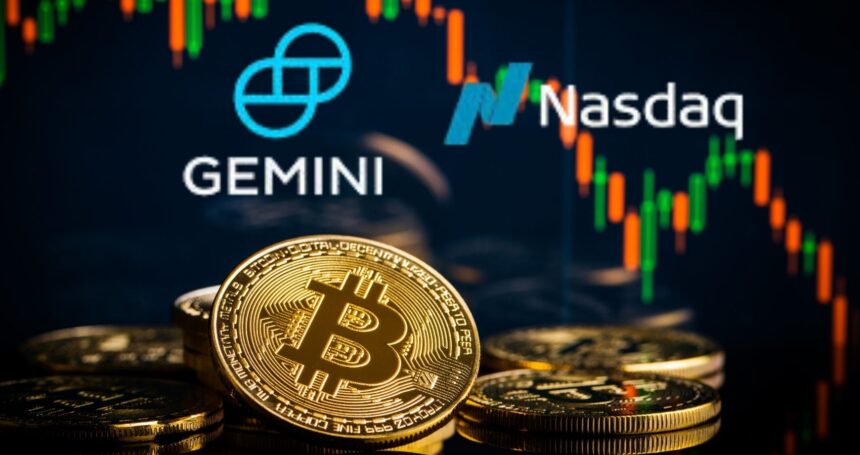Gemini priced its initial public offering at $28 a share, topping an already raised marketing range and hauling in $425 million as the crypto exchange prepares to begin trading on Nasdaq under the ticker GEMI.
The deal, set to open on Friday, comes after weeks of brisk investor demand and signals fresh risk appetite for digital-asset listings following a quiet stretch for new issues.
The company sold about 15.2 million shares to reach the $425 million mark, according to people familiar with the offering and media reports that smaller-than-planned share count, paired with the higher price, points to a book that was many times oversubscribed.
It also puts Gemini’s non-diluted market value around $3.33 billion at the IPO price. Earlier in the week, Gemini had lifted its range to 24 to 26 dollars after first marketing the deal at 17 to 19 dollars.
One detail stands out in a market that often prizes bigger raises. Gemini capped proceeds at $425 million despite the heavy demand, an uncommon choice for U.S. IPOs.
The tighter sizing may help support trading on day one by limiting immediate supply, but it also leaves less fresh capital for the company than it might have otherwise secured.
In a sign of strategic alignment, Nasdaq agreed to invest $50 million in a concurrent private placement at the IPO price, minus underwriting discounts.
The exchange operator’s participation underscores the industry’s bid to knit regulated market plumbing with crypto’s trading, custody, and settlement rails, and it gives Gemini an anchor investor ahead of the open. Goldman Sachs and Citigroup led the underwriting syndicate, joined by several other bulge-bracket and mid-tier firms.
The listing extends a run of crypto-linked IPOs in 2025. Stablecoin issuer Circle went public in June, and exchange operator Bullish followed in August.
If Gemini trades well, it could reinforce the idea that investor interest in digital-asset infrastructure has broadened beyond the small handful of early bellwethers. It may also stoke questions about how public markets will price different crypto business models, from trading and custody to tokenization and payments.
Gemini will arrive on the public market with clear growth ambitions and equally clear financial and regulatory caveats. The company is not profitable.
Its SEC filings show a net loss of $158.5 million on revenue of $142.2 million for 2024, and a net loss of $282.5 million for the first half of 2025, reflecting a tough stretch that included lower take rates and higher legal and compliance costs.
Gemini has faced multiple government actions tied to its defunct Earn lending program, including a $50 million settlement with the New York Attorney General that returned funds to affected customers, and a separate SEC case that the parties have discussed pausing to explore potential resolution.
The depth and durability of demand beyond the IPO allocation will be tested against the leaner float created by the smaller share sale and the Nasdaq private placement.
Early trading will hint at whether investors are assigning a premium for strategic relationships and perceived regulatory progress, or discounting continuing losses and litigation risk.
Relative valuation versus listed peers will matter. Coinbase and Bullish give the market visible comps across trading, retail versus institutional mix, and revenue cyclicality.




















